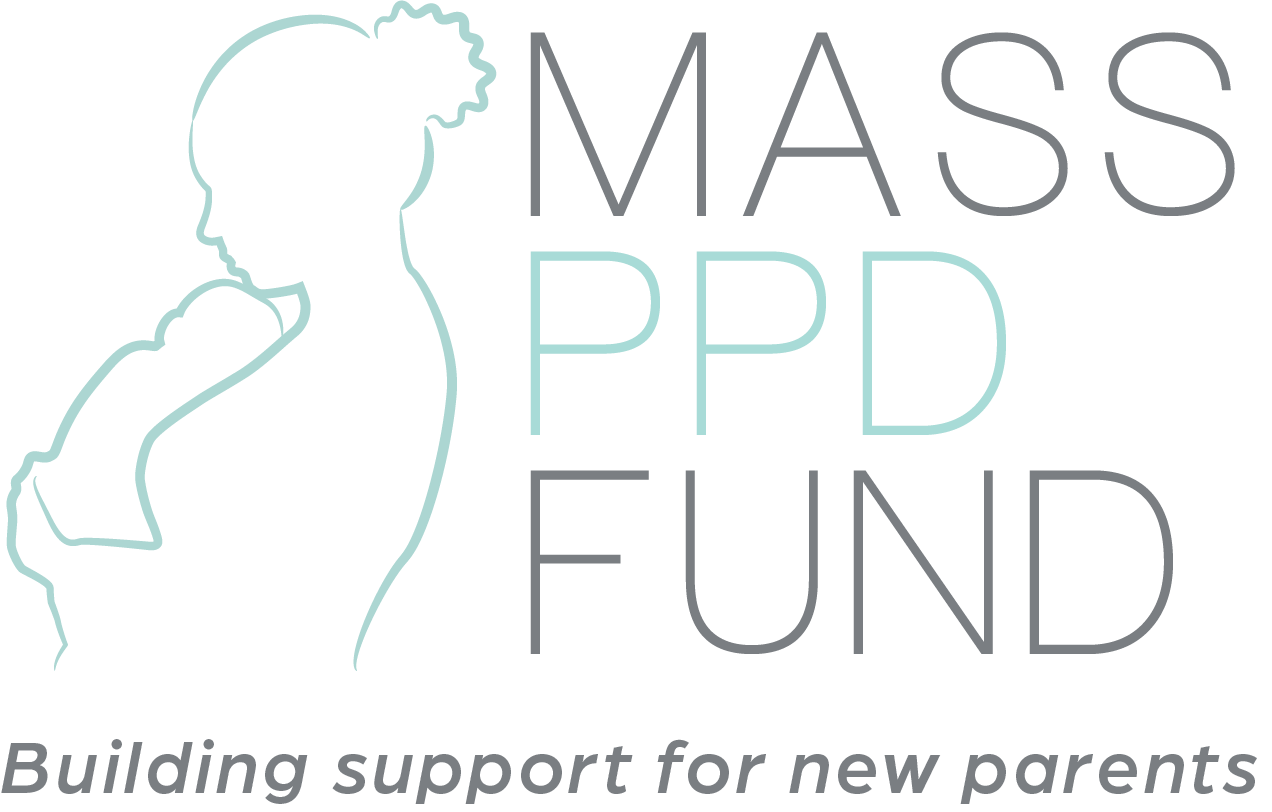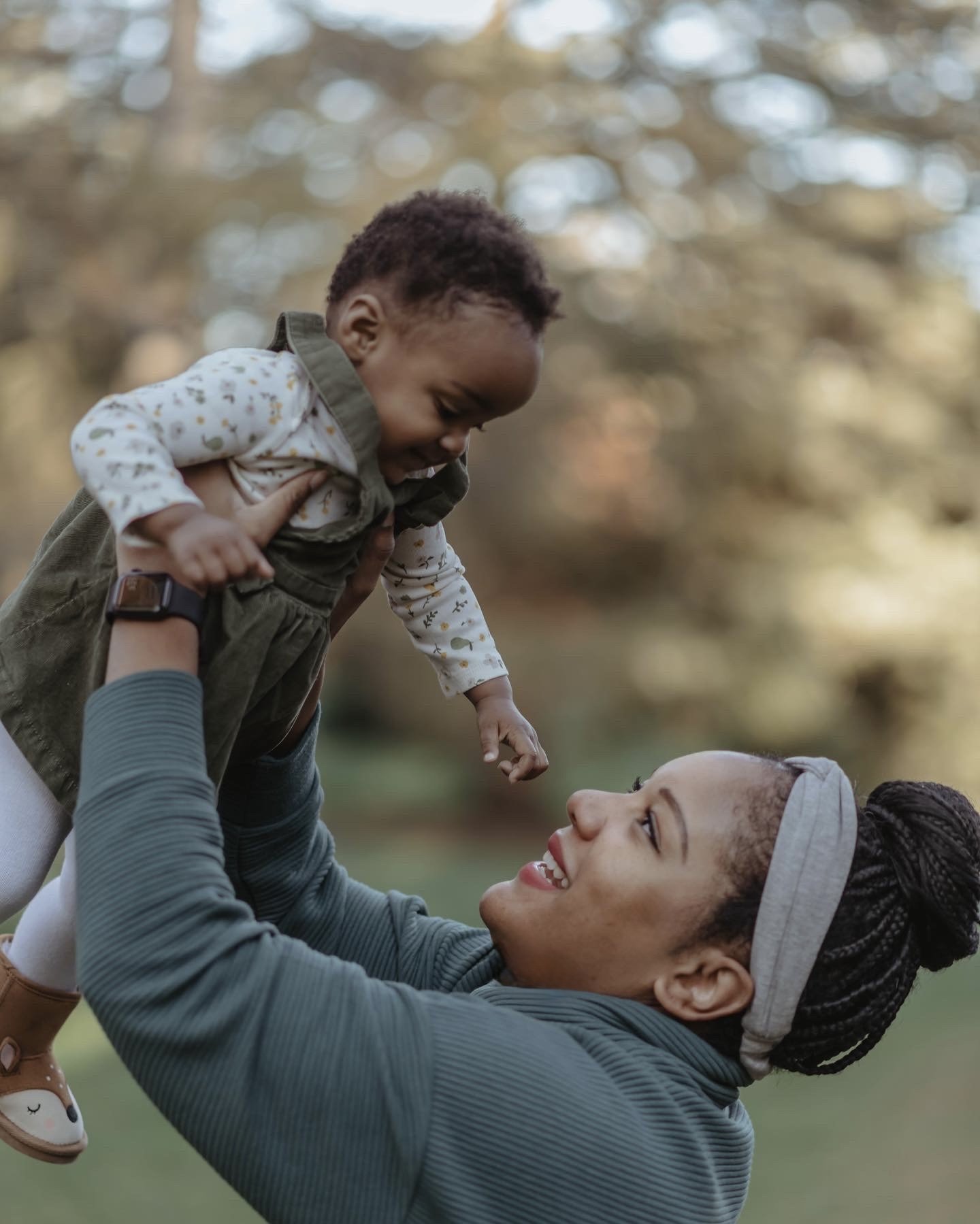MAMA’s Mariah Sabir
“At the end of the day, MAMA’s vision is simple: no birthing person should ever have to navigate pregnancy or postpartum without support. I just think that's vital, especially because so many birthing people are dying, specifically people that look like me. And what's not being talked about are individuals that are dying due to PMADs, and that needs to be addressed as well.” - Mariah Sabir, MPH, Co-Founder, MAMA
Mariah Sabir (Co-Founder, MAMA)
Mariah Sabir, MPH, is a public health leader with over 10 years of experience in advocacy, organizational management, and maternal health equity. A mother of three with personal NICU and postpartum challenges, she channels her lived experience into addressing systemic barriers, particularly for Black women. She has managed city offices, consulted on health and legislative initiatives, published on racial equity, and co-founded a maternal health nonprofit. Mariah also serves on Tufts University’s Community Advisory Board for Black Maternal Health and plans to pursue law to strengthen support for nonprofits and equitable health systems.
This blog is made possible by a sponsorship from Sage Therapeutics, Inc. and Biogen Inc. All content on this page has been curated by the Mass. PPD Fund without input from Sage Therapeutics, Inc. or Biogen Inc.
October 2025 | Interviewed and edited by Jessie Colbert, Executive Director, Mass. PPD Fund
It was great to sit down with Mariah Sabir, public health professional and Co-Founder of MA Mom Advocates (MAMA), a nonprofit that pairs new parents with an Advocate to help them access resources and support like therapists, doctors, and paid leave. MAMA Advocates take on the headaches of phone calls and paperwork that can feel so insurmountable in that early postpartum period, and also just lend compassionate support and a helping hand. In this interview, Mariah opens up about her perinatal mental health story and the bias and trauma she encountered during her first child’s birth. She also shares how MAMA came to be after she and other friends became that “village” for a new mom friend who needed it.
Let’s start with your personal story. You’ve shared that you anticipated needing a strong support system as a new mom because of past trauma and mental health challenges. That’s awesome, because as I’m sure you know, a history of mental health challenges is the #1 risk factor for Perinatal Mood and Anxiety Disorders (PMADs). What did that village look like for you?
I knew I had a trauma history, and I'd been in therapy for a long time prior to wanting to have kids. I thought it prudent to set myself up for success. This knowledge is from my therapist – she said I could have a higher chance of PMADs. That’s why you need great providers, because some providers won't tell you that information. She was like, let's prepare for this.
She helped me look for different groups. I also had my psychiatrist, I talked to both of them. It's partially my background, too, as a researcher. If my providers don't want to work together, then I don't want to work with them, because I like to have wraparound care for myself. I got my team together before having kids.
Luckily I did, because I did come into implicit bias and was dismissed when having my first child. She also ended up in the NICU for a week, which I had never experienced. My mom had never experienced that with me, and neither had any of my chosen family. It is difficult when you have a child and they're not in your room. And then you don't go home with them, which is huge. A lot of the nurses, especially the nurses of Color, were very helpful to me. But it was just a really difficult experience, even though it was a better experience than some of the other stories I've heard, or birthing people that have passed away from birth.
I’m so sorry, Mariah. Are you able to share more about what happened, and help us understand the connection between how you were treated and your mental health?
Being dismissed and not listened to, it made me question myself. When I was having my daughter, I had sharp pain in my upper back. I had an epidural, and I was asking the nurse, Is this normal? She brought the anesthesiologist in, and he just kept saying, No, I put it in right, I put it in right.
Then every time I kept on pushing, I was screaming because it felt like somebody was stabbing me in the back. And the nurse said, This is not supposed to happen. You're in too much pain, we can't push. It made me scared because I'm [worried], what's going to happen with Amira [the baby]? The doctors and nurses are telling me to push, but I can't push because my back hurts. I can see them trying to figure out what to do. I'm a very observant person, and I feel people's energy, so it’s nerve-wracking.
Finally, the nurse and the doctors [decided] we’re just going to stop the medicine. They turned me to my side and had me stop pushing and waited a little bit, which also scared me. It seemed like forever, but maybe it was 10 minutes. I finally was able to give birth to her. It was just really scary, and I felt traumatized because [the anesthesiologist is telling me he administered the epidural] correctly, and he didn't. I know my body.
I felt like I was going to have a panic attack. I already have major depressive disorder, I already have anxiety issues. My hormones are going crazy. Luckily, I had that nurse that listened to me, and then I was able to speak to my therapist right after, and my psychiatrist contacted me. They all made sure I was good, but I was crying for a good month afterwards.
You’re a public health person. From that perspective, how do you think about what happened? How can we create a better system so other birthing people don’t have to experience what you did?
Actually listen to the patient when they're telling you something's wrong and not assuming they don't understand their body. Try to go deeper and figure it out, like the nurse did. She believed me. And the doctor believed me, too, even though she had to be in and out and didn't actually see the pain at first. Try to go through steps in order to alleviate whatever the issue is, and then do better.
As a public health professional, if I did something that wasn't working one time, I’d learn from that mistake and create steps to make sure it’s better next time. I equate it to just implicit biases that they learn in the medical field.
Tell us more about MAMA – what is your mission, and what inspired you as a Co-Founder? What’s next on the horizon for the group?
Mama was born from Katie's [MAMA Co-founder Katie Riconda] experience specifically. She didn't have continuity of care, she didn't have a therapist. She ended up having postpartum depression. She really didn't feel like she had much support until she reached out to me and Steph [MAMA consultant Stephanie Campbell] — we’re basically her village. We took on [all her calls to find providers], we gave her information. We're all researchers, and we’re like, you don't have to do the work, we’ll do this for you.
And then she thought, people should have something like this! Especially where she lives in Barnstable County, on the Cape. Katie is a white woman; if she had an issue getting services, and she actually had a good job, and her husband has a good job, and they have good insurance, imagine [the challenges for] a person of Color, maybe of lesser means, or an indigenous person. The least we could do is help with the resources and be the village, too. That’s when she said, Mariah, I know your experience, would you want to co-found this with me? And I said, Of course!
We started this from the ground up, and we're just very compassionate about what we do. It's through the perinatal stage, pregnancy through the postpartum year. As far as your OB, you only see them once six weeks after [you give birth], and that's it. We're trying to make it so you can have more [support from] somebody other than your significant other, or some people don’t even have that. I know for me, both my husband and I, we were tired. He's like, I don't want to call anybody.
We want to be there for any caregiver, any birthing person, just to help out the family. We're the administrative people for them. Your OB may give you a huge list, people you need to call to get resources, food, pediatricians, all of that. That can be very overwhelming, especially if you have a PMAD. I could barely get out of bed, I could barely talk to people. It's paralyzing. We get it — give us that list! [Let us know what resources you need] or we’ll talk to your significant other or family member. Whatever you need us to do, we’re there to help.
Our model is a peer-led model, and we’re a nonprofit — we don't accept payment for our services. You don't have to go through insurance either, which could be limiting. It doesn't matter what income level you are, we want to be able to help anybody. We want to grow throughout Mass. We’re currently working in Barnstable County, and our next catchment place is in Central Mass, and we're planning on doing the Springfield area next.
At the end of the day, our vision is simple: no birthing person should ever have to navigate pregnancy or postpartum without support. I just think that's vital, especially because so many birthing people are dying, specifically people that look like me. And what's not being talked about are individuals that are dying due to PMADs, and that needs to be addressed as well.
This is a passion built out of friendship, a service, because that's how I grew up. I've always been that way since I was a kid, just wanting to help. This capitalist society was definitely not made for women or women of Color to thrive, even though we're [giving birth to] the men, which is crazy. We're changing that, little by little.
Peer advocacy is at the heart of MAMA’s mission. Why is that 1:1 support and advocacy so important for new parents, and particularly from someone who shares your identity, if possible?
Peer advocacy, it just feels the void of people feeling like they're not being seen. When you have someone that shares your identity and lived experience, it makes you feel less isolated and builds trust. I don't want to say like family, but it can almost feel like that for a lot of people. I know it felt like that for me. It can change people's lives.
My therapist is also like chosen family to me, even though I pay them! I’ve had long-time therapists, I had to change once because of insurance. And I have chosen family too that I could talk to. [MAMA] will be those types of people.
That's wonderful. If you could give one piece of advice to a new mom, birthing person, or partner, what would it be?
You don't have to go through this alone. Asking for help is a sign of strength, not weakness. And build your own village, whether it's family, friends, or advocates, and give yourself permission to lean on them.



